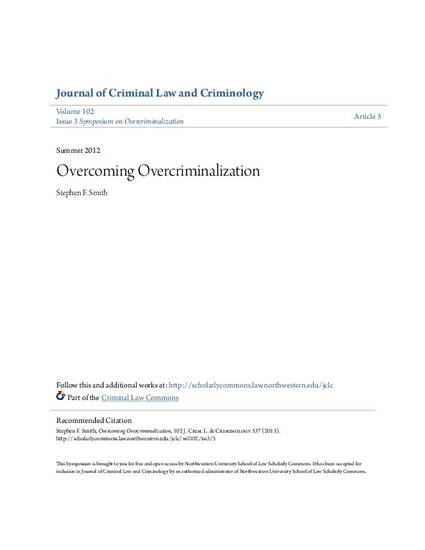
The literature treats overcriminalization (and, at the federal level, the federalization of crime) as a quantitative problem. Legislatures, on this view, have simply enacted too many crimes, and those crimes are far too broad in scope. This Article uses federal criminal law as a basis for challenging this way of conceptualizing the overcriminalization problem. The real problem with overcriminalization is qualitative, not quantitative: federal crimes are poorly defined, and courts all too often expansively construe poorly defined crimes. Courts thus are not passive victims in the vicious cycle of overcriminalization. Rather, by repeatedly interpreting criminal statutes broadly, courts have taken the features of federal criminal law that critics of federalization find objectionable — its enormous scope and its severity — and made them considerably worse. By changing how they interpret criminal statutes, the federal courts can help overcome overcriminalization even if Congress continues to be unrestrained in its use of the criminal sanction.
Available at: http://works.bepress.com/stephen_f_smith/11/
